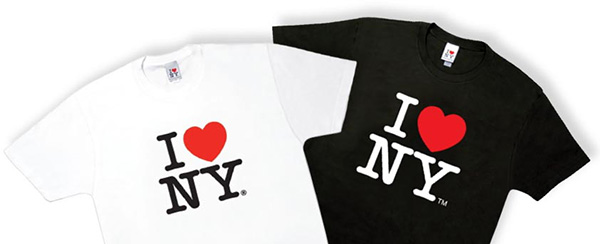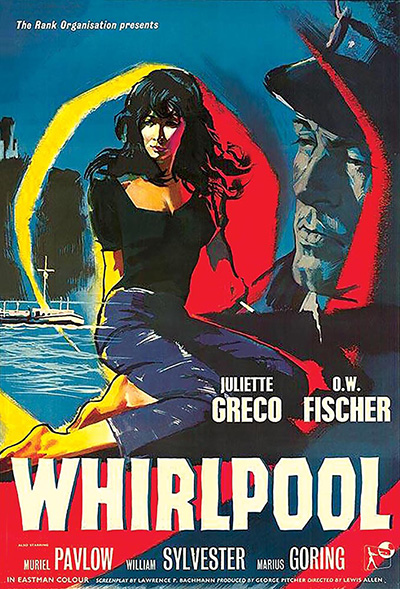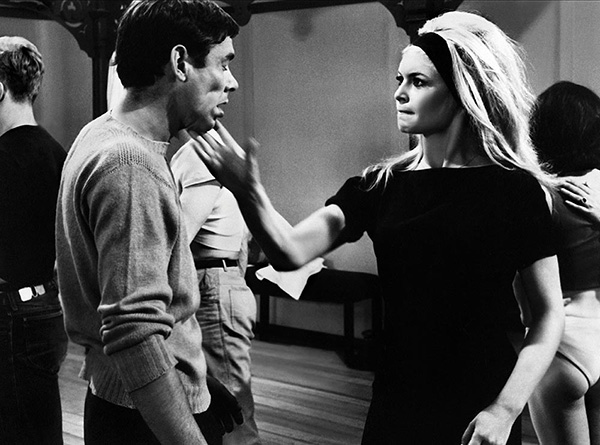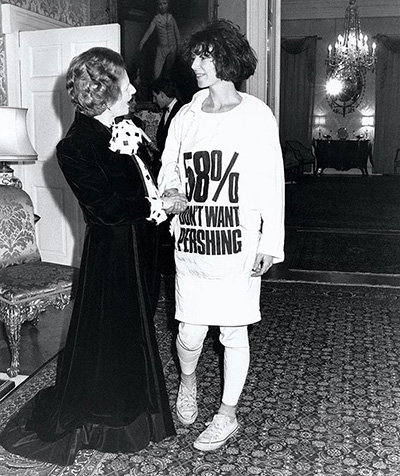
In the finale of Prabal Gurung's autumn 2017 fashion show, the designer and his models startled the audience with their T-shirts, stamped with provocative political slogans such as: "The future is female." "I am an immigrant." "This is what a feminist looks like."
Clean-cut white T-shirts have become the perfect means for fashion designers to convey a blunt message – and they're easy to match with just about anything in your closet.
Evolving from the late 19th century when the one-piece garment was divided in two for miners and others working in hot environments, the history of the T-shirt took shape in the early 1900s when the US Navy began issuing the white, form-fitting, crew-neck cotton undergarments. First attributed in print to F Scott Fitzgerald in his debut 1920 novel This Side of Paradise, the T-shirt served as an unofficial uniform for laborers in the US, from farmers to factory workers – yet it wasn't considered fashionable at all until the 1940s, when it became popular among teenagers.
When Marlon Brando wore his tight-fitting white T-shirt in A Streetcar Named Desire in 1951, the whole world began to discover the hidden sexiness under the soft cotton. T-shirts became associated with masculinity and confidence. The 1955 film Rebel without a Cause, with James Dean, further pushed the T-shirt's "bad-boy" image, with Dean's iconic white T-shirt paired with a red nylon jacket and light-blue jeans. With comfort, inexpensiveness and style rolled into one, T-shirts became a man's wardrobe staple.

Slightly after the craze hit the men's scene, the T-shirt was also earning feminine power through elegant silhouettes on French screens. Juliette Gréco interpreted the woman-on-the-go image in the 1959 film Whirlpool with various T-shirt styles; on the movie's poster, she's in a fitted black V-neck T-shirt, with her unruly facial expression adding to the garment's status as a rebellious symbol.

In the 1962 film A Very Private Affair, Brigitte Bardot also contributed to the look with a short-sleeved, black boat-neck T-shirt, leaving a lasting impression, particularly in the scene when she slaps Dirk Sanders.
Fruit of the Loom is one of the oldest US garment manufacturers still active in the business today; it was founded in 1851 in Rhode Island as a quality cotton cloth and textiles producer. Later, the company expanded from nightshirts and underwear into classic mono-color T-shirts. Graphic T-shirts came into the public attention around the 1950s, when Miami-based company Tropix Togs acquired the exclusive rights from Disney to print images of Mickey Mouse and holiday resort names on its T-shirts.
A couple of decades later, the famed "I ♥ New York" T-shirt was unveiled to the world. The original logo was by famed graphic designer Milton Glaser, who created it for the New York State Tourism Department in 1977 for free, not knowing that it would linger for years and inspire numerous cities to follow suit. It's estimated that New York State lawyers have filed more than 3,000 objections related to violations of its trademark.

Though it's impossible to nail down a date, T-shirts certainly rose to prominence as tools of political activism in the 1980s. English fashion designer Katharine Hamnett created her series of oversized block-letter T-shirts, originally with the "Choose Life" slogan, in 1983. Hamnett was famously photographed shaking hands with British prime minister Margaret Thatcher, wearing her T-shirt that read "58% Don't Want Pershing" to reference the anti-militarisation stance of the British public. Thatcher was claimed to have "uttered a shriek of horror" when they met.

Far from irrelevant today, modern celebrities have also shown their love of message-based T-shirts. Last year, fashion model Gigi Hadid wore a white cotton top emblazoned with the slogan "lol ur not zayn malik" to publicly endorse her boyfriend Zayn Malik, former member of British boy band One Direction. The gesture won her boyfriend's sweet (albeit not particularly grammatical) response on Instagram: "Thas ma girl". Hadid's friend and fellow fashion model Kendall Jenner also sported a famous slogan-emblazoned T-shirt – "I'm Yours for a Tenner Kendall Jenner" – for her 2016collaboration with House of Holland.

Be it plain comfortable or effortlessly sexy, a classic rock concert memory or everyone's favourite tourist souvenir, a harmless fashion triviality or a powerful political statement, the T-shirt remains an essential piece in everyone's wardrobe.
